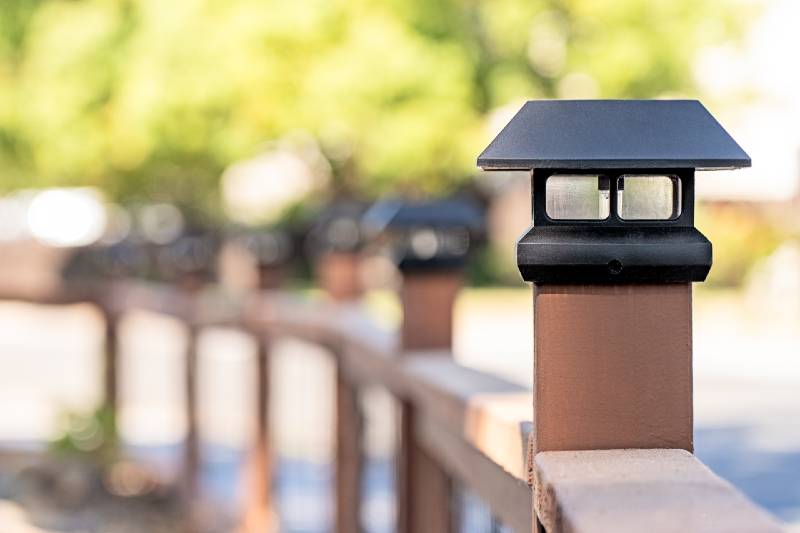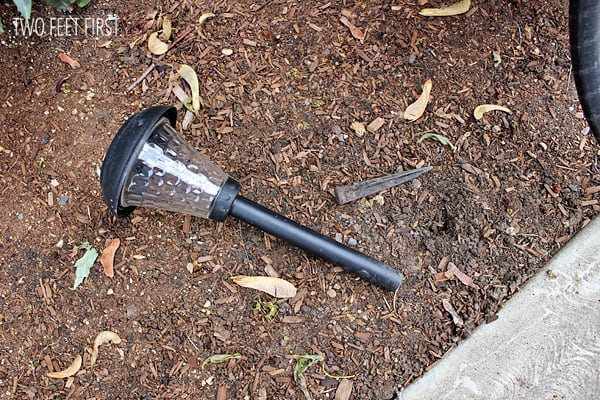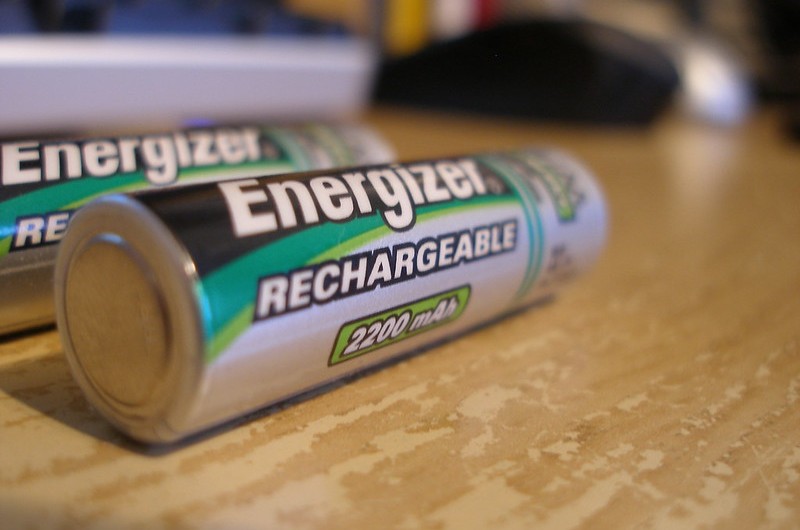Solar lights are amazing.
They are extremely easy to install, powered entirely by the sun, and can provide much-needed light in remote or off-grid areas.
But sadly, they come with their own limitations.
One of them is that they do need sunlight in order to charge and function properly.
But believe it or not, solar light doesn’t need direct sunlight to charge.
They can still gather energy from indirect or diffused sunlight, like on cloudy or overcast days.
In this article, we will go through how solar light uses
sunlight to charge, and how to maximize its charging potential in different conditions.
So without further ado, let’s jump right into it.
What Do Solar Lights Need To Charge?
To understand how to charge solar lights, it’s important to understand how solar panels work.
First of all, let’s agree that electricity is the movement of free electrons through a conductor, like a wire.
And the more electrons moving through the wire, the higher the electricity or voltage.
Now, solar panels are made of semiconductor material, often silicon.
What’s great about the silicon atom is the fact that it has 4 electrons in its outer shell.
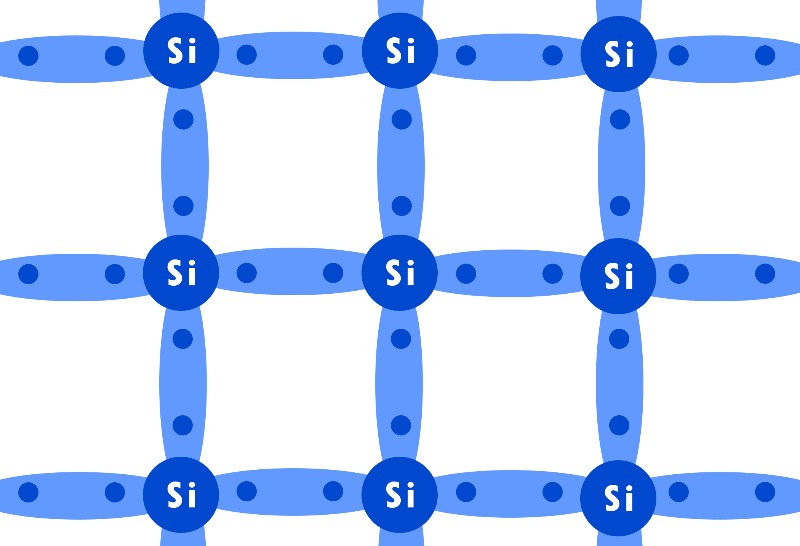
Since these electrons are far from the nucleus, the magnetic force holding them in place is weaker, so the electrons just need a tiny amount of energy and they can escape the atom’s orbit and become free electrons.
We can then use these free electrons (electricity) to charge our batteries or power our lights.
Now, we just need something that can provide the electrons with the small amount of energy needed to escape the atom’s orbit.
And that’s where light comes in!
Light is made up of small particles called photons.
When a photon hit an electron, it can transfer energy to it.
And if the energy transfer is just the right amount, it can give the electron enough energy to escape the atom’s magnetic force and become a free electron (aka create electricity).
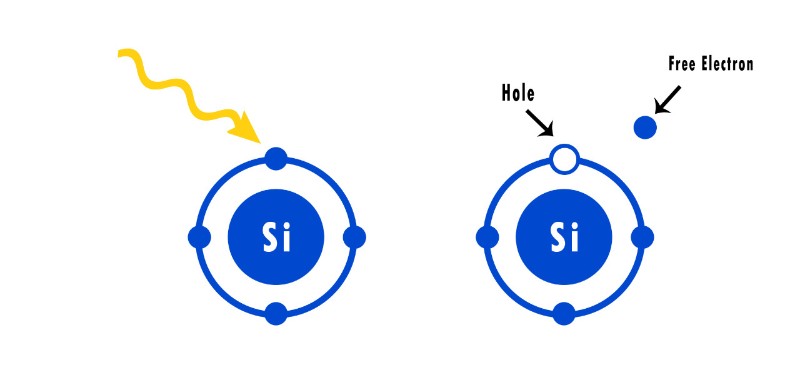
This is called the photovoltaic effect.
So, solar panels use this photovoltaic effect to convert light into electricity, which can then be used to charge the solar batteries and power the lights.
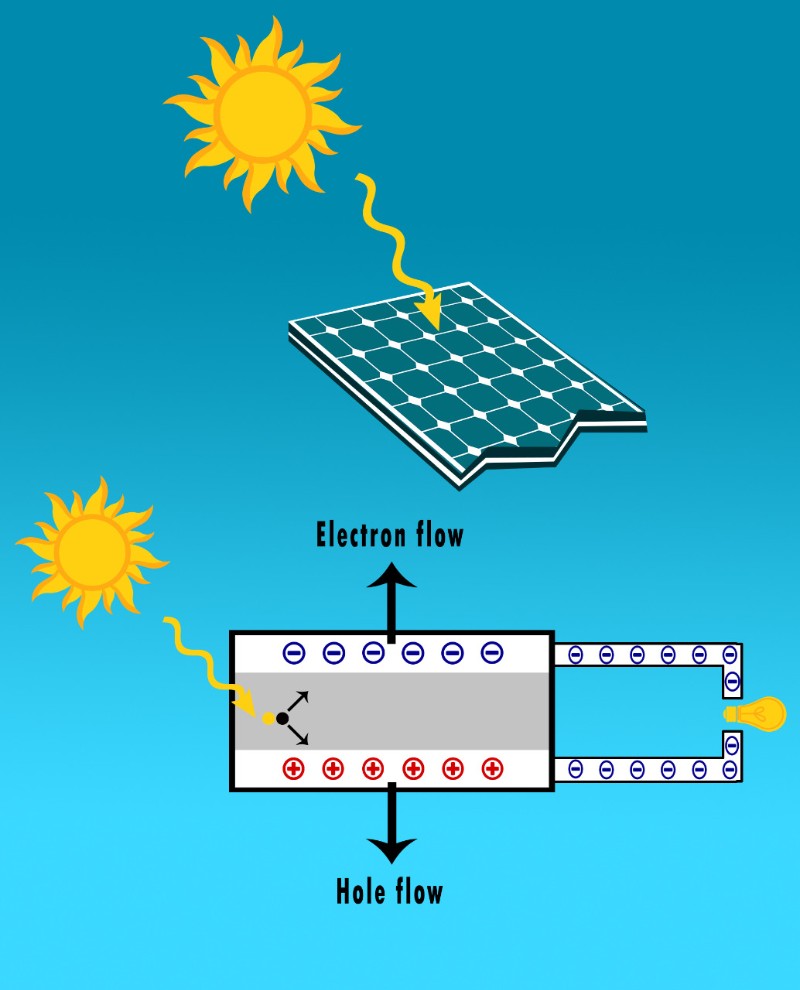
Now, you notice how I said light, not sunlight?
That’s because all types of light, whether it’s natural sunlight or artificial light, are made up of photons and can create electricity.
But, sunlight is the most efficient source of light because it contains more energy in each photon, so they can knock loose more electrons and create more electricity.
Can Solar Light Charge in the Shade?
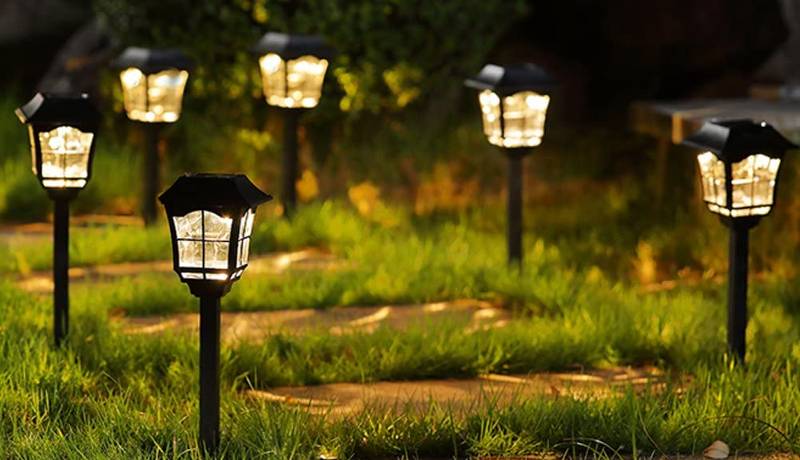
Solar lights can charge in the shade because even in shade there is still some sunlight present that can create electricity through the photovoltaic effect.
But, they will charge much slower and not as efficiently as if they were in direct sunlight.
This is also true during cloudy or overcast days, as there is still some sunlight present even though it may not be as strong to charge your solar lights in winter.
That’s why it’s important to place your solar lights in a location that receives ample sunlight during the day.
How to Charge Solar Light Under Shade?
While installing your solar lights in an area with ample sunlight is the best option, there are still some ways to maximize their charging capabilities in shaded areas.
The first thing you need to do are make sure the solar panels are clean and free of any debris that might block sunlight from reaching it.
Simply use a damp cloth or towel and gently wipe down the panel. If there is any stubborn dirt, use mild soap and water.
Another thing you can do is to use reflective surfaces, like mirrors or shiny metal sheets, to redirect and concentrate sunlight onto the solar panels.
You can also use solar panels with a higher wattage, as it will be able to convert more sunlight into electricity even in shaded areas.
Overall, while solar lights don’t necessarily need direct sunlight to charge, they will charge most efficiently and quickly in direct sunlight.
But, with a bit of creativity and strategy, you can still maximize their charging capabilities even in shaded areas.
Will Solar Lights Work Without Sunlight?
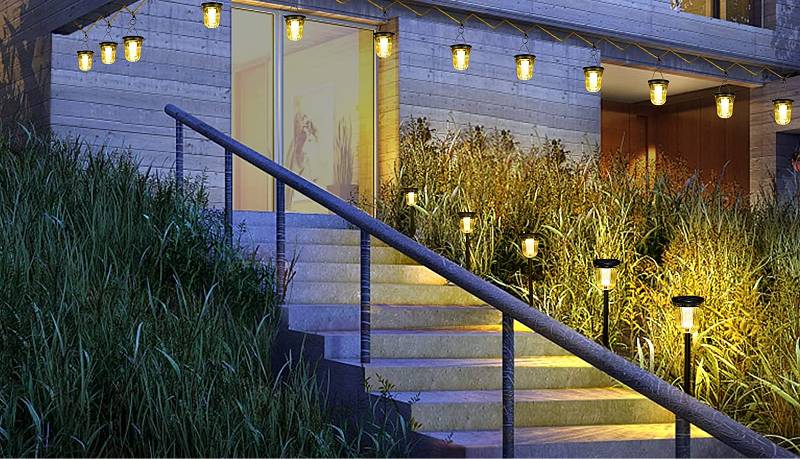
Solar lights can work without sunlight.
There are many different ways to charge your solar lights without sunlight, including using artificial light, battery chargers, USB cords, or hand even fire.
But, keep in mind that these other charging methods are not as efficient and will likely not charge your solar lights as quickly or effectively as using sunlight.
How Much Sun Do Solar Lights Need?
The average solar light requires about 6-8 hours of sunlight to fully charge.
But, this can vary depending on the size and efficiency of your solar panels, as well as the intensity of the sunbeam.
So, it’s best to place your solar lights in a location where they can receive direct sunlight for as long as possible each day.
Will Charge Solar Lights Through Windows or Glass?
Solar Lights will charge through windows, but they won’t be very efficient.
This is because glass tends to reflect sunlight, which leads to less sunlight absorption by the solar panels, thus, less electricity production and less charging efficiency.
In other words, they will still work but their performance will be reduced, so make sure to install your solar lights panel in a sunny place with no windows or glass nearby.
Can Solar Lights Charge Indoors?
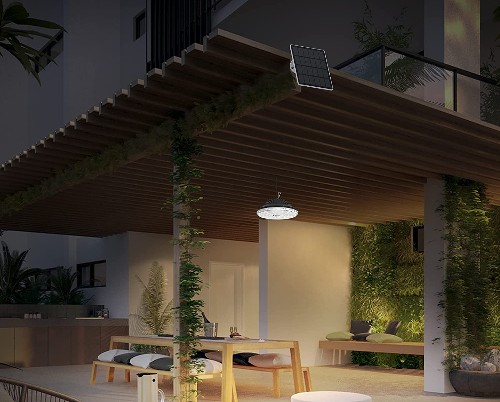
Solar lights can charge indoors, but they will not be as efficient as if they were charging in direct sunlight outside.
This is because even if your home gets a lot of sunlight, the light that comes through windows or skylights has been diffused and won’t be as strong as direct sunlight.
Luckily, there are some solar lights that are specifically designed for indoor use.
These lights have a separate solar panel with a long cord, so you can place the panel outside in direct sunlight while keeping the light inside.
Alternatively, you can also charge your solar lights indoors using artificial light or other charging methods mentioned above.
It won’t be as efficient, but it’s something.
Conclusion
To summarize, solar lights do not necessarily need direct sunlight to charge but they will be most efficient and charge the quickest in direct sunlight because sunlight contains more energy in each photon.
However, there are ways to maximize their charging capabilities in shaded areas, like using reflective surfaces and having a higher-wattage solar panel.
Remember, the goal is to get high-energy photons hitting the solar panel for maximum charging efficiency.
It doesn’t matter if it’s direct sunlight or reflected sunlight, as long as the energy is there.
And if all else fails, you can always charge your solar lights with alternative methods, like artificial light or battery chargers. But

